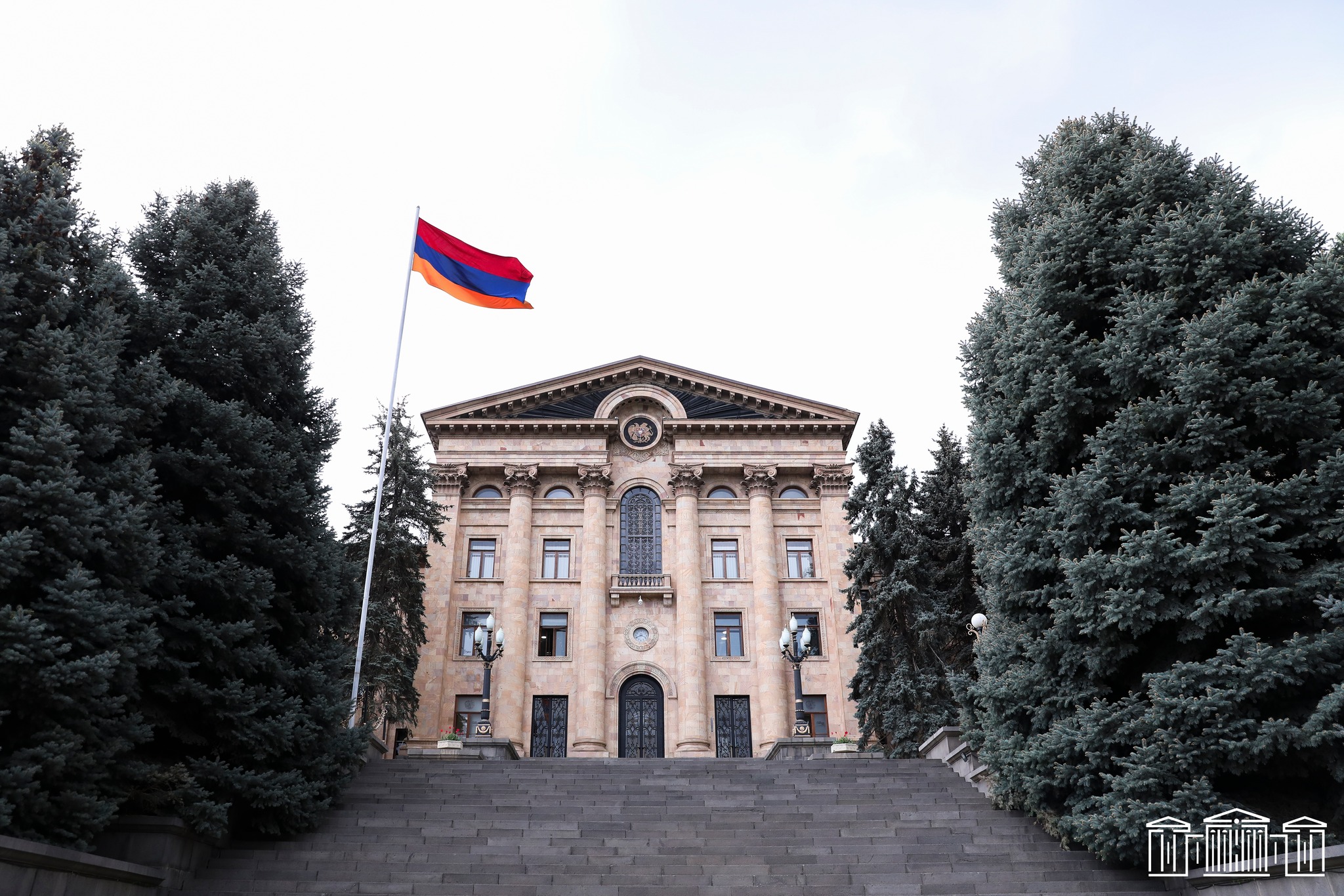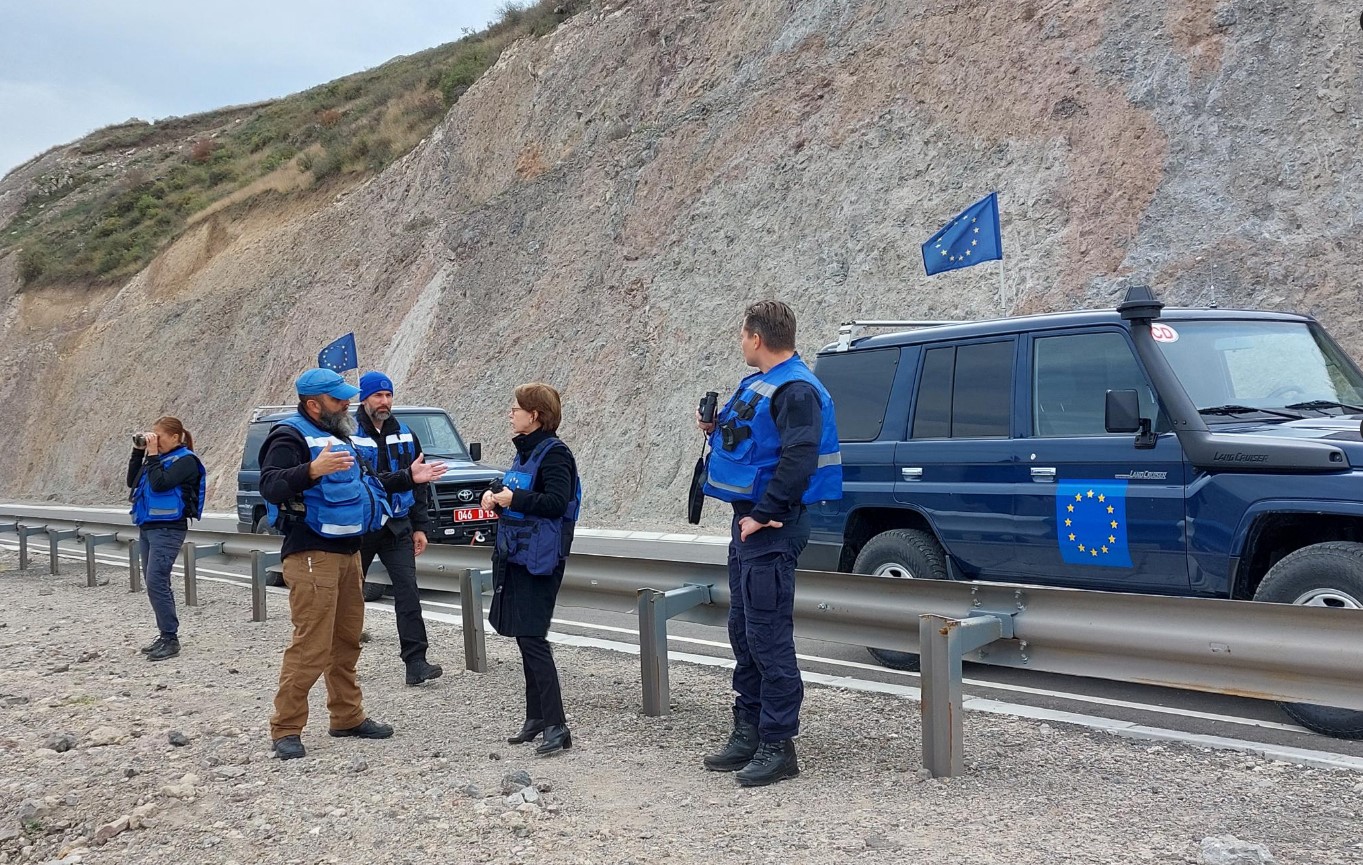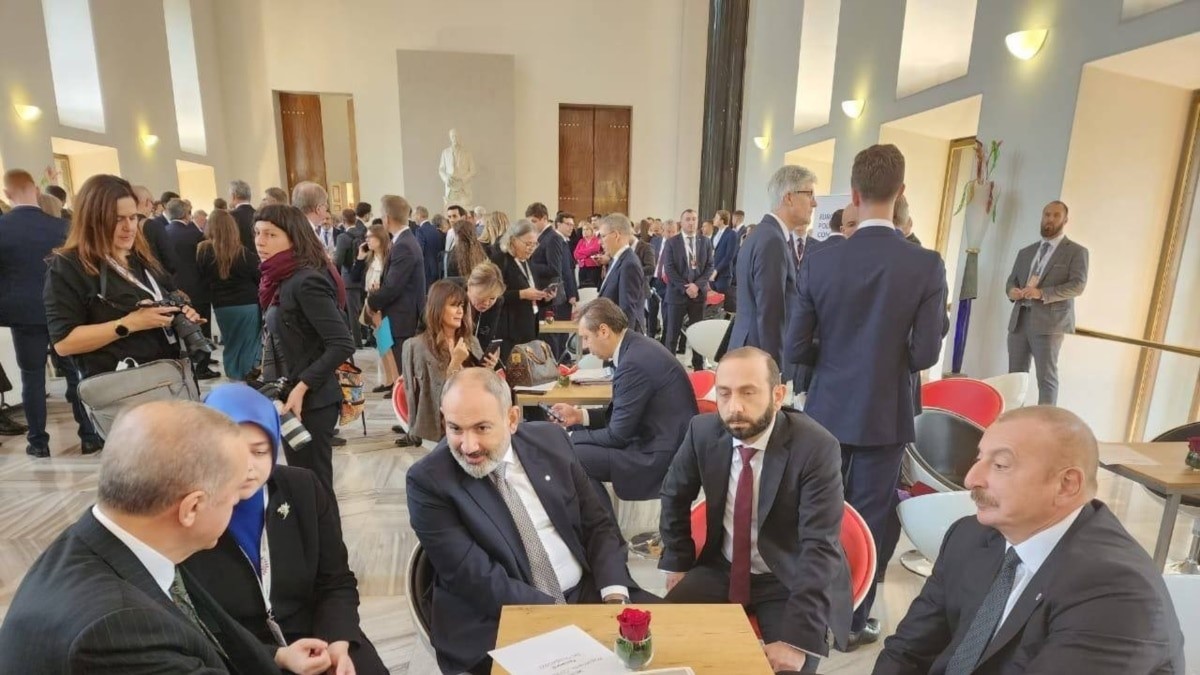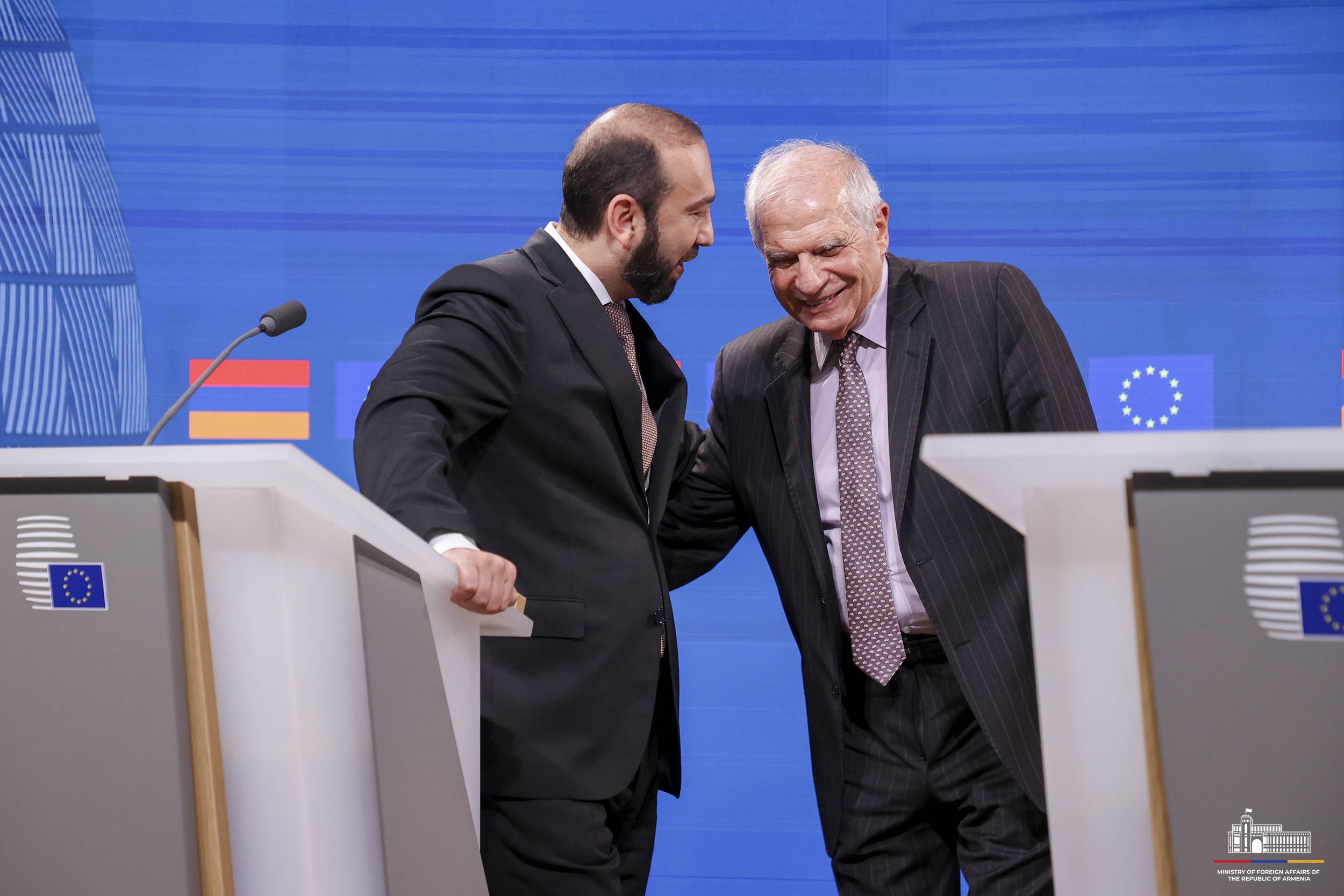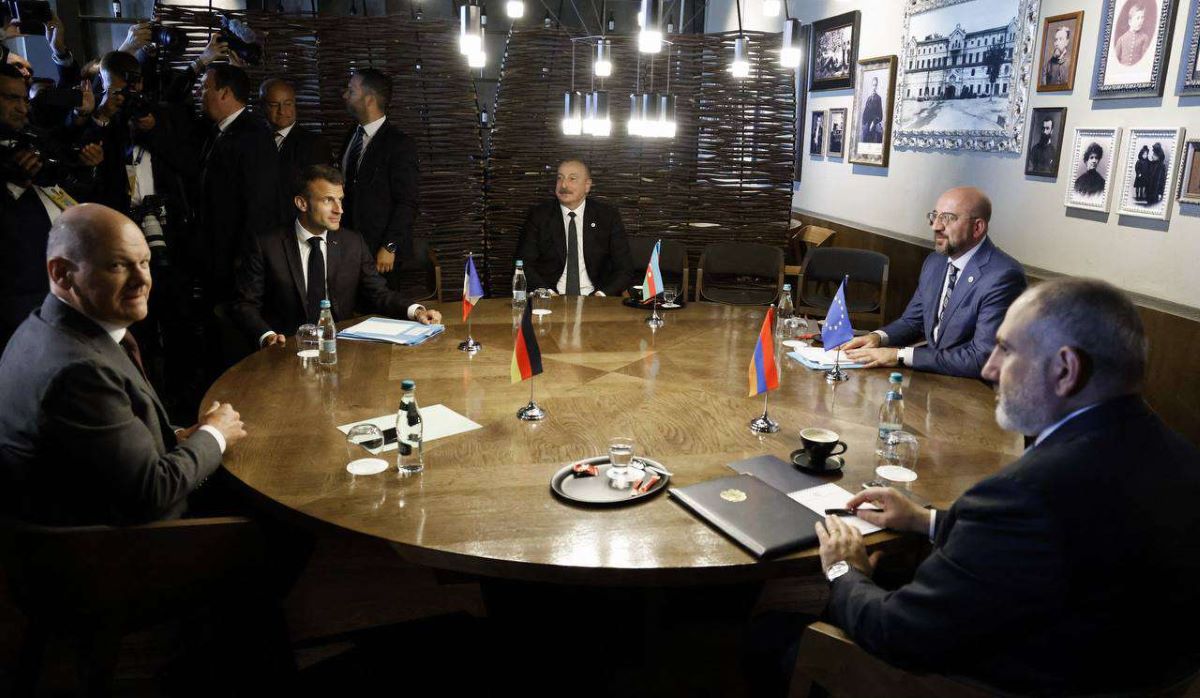"Armenia provided with safety cushions" - Opinion on the Brussels meeting
The Brussels meeting
“The United States wants to see Armenia as a prosperous and stable country capable of living in peace with its neighbors. The US and EU are ready to make efforts to achieve these goals,” said US secretary of state Antony Blinken in Brussels during a joint briefing with the prime minister of Armenia and the president of the European Commission. The statements for the press were made during the day, during the break between the rounds of negotiations between Pashinyan-von der Leyen-Blinken.
Joining the participants of the meeting during the briefing, EU Foreign Affairs chief Josep Borrell added, “Today, together with our American friends, we are elevating our partnership with Armenia to a new level, pooling efforts to demonstrate our strong commitment to Armenia’s sovereignty, democracy, and resilience.” European Commission president Ursula von der Leyen welcomed Armenia’s democratic reforms and its refusal to assist Moscow in circumventing sanctions.
The participants of the Brussels meeting once again, as before the meeting, stated that they are discussing the prospects for Armenia’s economic development and social support for Armenians who have resettled from Nagorno-Karabakh.
After the briefing, negotiations continued. A few hours later, Nikol Pashinyan wrote on his social media page, “We had excellent consultations with our partners from the US and EU on expanding cooperation in the name of strengthening Armenia’s economic, humanitarian, and democratic stability.”
The meeting participants could not avoid discussing security issues, believes political analyst Gurgen Simonyan.
At the same time, he emphasizes that the economy is closely linked to security and geopolitical realities: “This is a step emphasizing Armenia’s sovereignty. Partners of the Euro-Atlantic security system and the EU seek to provide Armenia with safety cushions so that Armenia could more decisively demonstrate its will [referring to a shift in foreign policy towards the West].”
- “Aliyev questions the existence of the Armenian state” – German political scientist
- Why did Russian border guards not let EU observers get to the Armenian border?
- “Russia abandoned us at the most critical moment,” said the speaker of the Armenian Parliament
Meeting outcome
Following the meeting, participants issued a joint statement. It highlights that the EU will continue supporting Armenia in its reform efforts through the implementation of the Comprehensive and Enhanced Partnership Agreement (CEPA).
In order to advance reforms and expand cooperation in all areas, the EU and Armenia expressed readiness to implement a new, more ambitious partnership program:
“The EU and the USA intend to provide additional assistance to help Armenia mitigate risks, diversify trade, and strengthen economic and institutional resilience.”
Details: How the US and EU intend to support Armenia
Brussels is prepared to provide an additional €270 million over the next four years to support Armenia’s economic development, announced European Commission president Ursula von der Leyen:
“We will support your businesses, your talents, especially small and medium-sized enterprises, to help them grow, innovate, and enter new markets.“
She mentioned that investments are planned in infrastructure projects such as the Black Sea underwater power cable, renewable and nuclear energy sectors in Armenia, as well as aviation.
“The United States will invest $65 million in Armenia’s economy, which is 50 percent more than the assistance provided two years ago,” said US Secretary of State.
According to him, the US supports Armenia’s government project “Crossroad of Peace,” aimed at unlocking regional communications.
Ursula von der Leyen and Antony Blinken assured that they will continue to provide financial support to refugees from Nagorno-Karabakh.
EU High Representative Josep Borrell emphasized that Armenia-EU relations are “more than strong,” positively evolving, and there is mutual interest in strengthening them:
“A more stable and stronger Armenia means a more stable and stronger South Caucasus, from which all countries in the region will benefit.”
“We are ready to make Armenia’s investment environment more attractive”
The meeting in Brussels marks Armenia’s expanding partnership with the United States and the European Union, stated the prime minister of Armenia. At the core of this cooperation lies respect for human rights and fundamental freedoms:
“The Republic of Armenia reaffirms its commitment to promoting reforms in the judiciary and public sector to build a stronger, safer, and more developed country.”
Nikol Pashinyan expressed confidence that it is the most opportune time for economic cooperation:
“We are prepared to enhance our investment environment, making it more appealing to European and American companies. We expect our partners to support us in modernizing Armenia’s infrastructure, building business networks, and exploring possible trade facilitation schemes.”
Criticism from neighboring countries
The Armenia-EU-US format meeting in Brussels garnered attention long before it took place. Moscow, Baku, and Ankara have been voicing criticism of this event for quite some time. Despite both the initiators and official Yerevan repeatedly stating that only economic issues, as well as reforms and the development of democracy in Armenia, would be discussed during the meeting. It was particularly emphasized that the Armenian-Azerbaijani agenda would not be addressed.
Russia stated that the meeting aims to create new dividing lines in the South Caucasus, disrupt longstanding ties with Moscow, and weaken existing mechanisms for regional security and economic cooperation.
Azerbaijan and Turkey claimed that this was a biased format based on double standards and contrary to the principle of neutrality. The US secretary of state and the president of the European Commission even deemed it necessary to call the president of Azerbaijan and assure him that the meeting was not directed against Baku.
Commentary
Political analyst Gurgen Simonyan believes that Armenia’s current government’s efforts towards economic diversification are driven by security concerns. Therefore, it is not coincidental that discussions in Brussels focused on the economy.
Armenia hopes to obtain candidate status for EU membership, similar to Georgia, Moldova, and Ukraine, according to the expert. He does not rule out that the process of visa liberalization will accelerate, granting Armenian citizens the opportunity to visit EU countries visa-free. Simonyan is confident that European partners will assist in standardizing Armenia’s economy so that “Armenian products meet the required standards and can enter European markets.”
According to Simonyan, Armenia’s strategic task for the coming years is to become an EU member:
“The development perspective will lead to full membership, accession to the EU, and becoming part of the Euro-Atlantic security system. There is no other way. Armenia currently has no other option to exist as a state and defend itself.”
In response to the question of whether the US and EU are ready to neutralize the risks posed by Russia towards Armenia, which has chosen the path of European integration, Simonyan replied:
“This visit is the result of a policy of neutralization.“
In his opinion, Armenia has an “historic opportunity” to fully break free from constraints and ensure its sovereignty:
“This opportunity must be seized, otherwise all these consultations and meetings will be meaningless.”
According to Simonyan, the meeting in Brussels is not a one-time action but part of a strategy, and the process of strengthening ties will continue.
The analyst emphasizes that there will be no hierarchy of “superior and subordinate” in these relationships, as was the case with Russia:
“Russia may not have recognized our independence due to certain factors, treating us as an object and putting us up for auction. In this format of relations, such a policy is excluded because the emphasis is placed on our independence. And it will depend on us how resilient, enduring, and competitive we will prove ourselves as a nation.”










